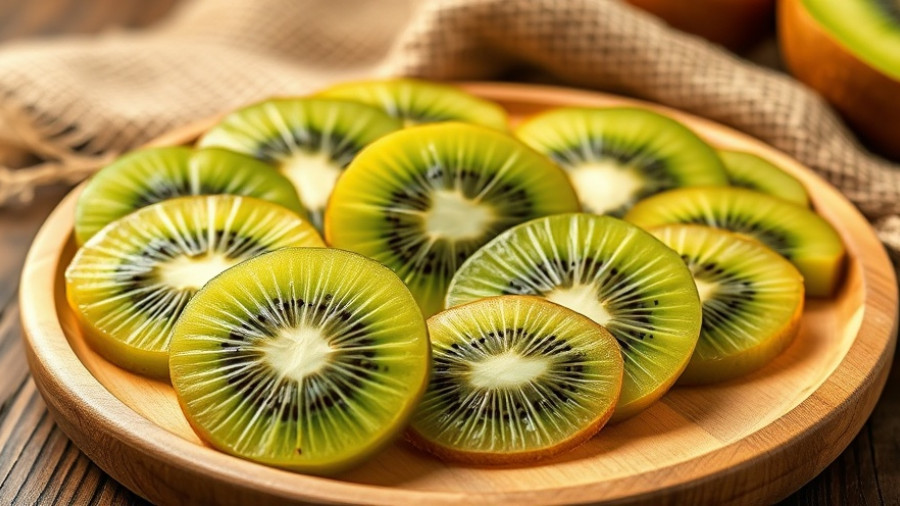
Rethinking Constipation Relief: The Role of Kiwi and Rye
Chronic constipation can be a painful and frustrating issue, affecting millions worldwide. Recent research from King’s College London has revealed a groundbreaking perspective on how to combat this often-embarrassing condition. Rather than relying solely on traditional high-fiber diets, which are frequently recommended, evidence shows that certain foods such as kiwifruit, rye bread, and mineral-rich water offer genuine relief. This marks a shift from the longstanding advice of simply increasing fiber intake to a more comprehensive, evidence-based dietary approach.
Why Fiber Alone Isn't Enough
Historically, health professionals have often stressed the importance of fiber for digestive health, recommending 22 to 34 grams of fiber daily for adults. However, recent studies, including this new set of dietary guidelines, demonstrate that many traditional high-fiber approaches may lack sufficient scientific backing. The dietary recommendations provide practical alternatives that can significantly enhance the quality of life for those suffering from this condition.
A Closer Look at Effective Nutritional Strategies
The comprehensive research incorporated systematic reviews and meta-analyses from over 75 clinical trials, resulting in 59 specific recommendations for managing chronic constipation. Apart from kiwi and rye, other notable mentions include psyllium, certain probiotics, and magnesium oxide, demonstrating that effective dietary management can extend beyond what was predominantly understood.
The Clinical Endorsement Behind the Guidelines
These guidelines were published in the Journal of Human Nutrition & Dietetics and are backed by the British Dietetic Association. Their emphasis on detailed, evidence-based practices enables healthcare providers and patients to make well-informed dietary choices.
Personalized Nutrition: The Future of Dietary Choices
The guidelines do not just stop at suggesting new foods; they highlight the necessity of tailoring dietary advice to the patient’s specific symptoms. This individualization is crucial, as the distress caused by constipation often varies from person to person, thus requiring tailored nutritional inputs for optimal results.
Challenges in Existing Dietary Research
Despite the encouraging findings from this review, it also underscores the challenges present in existing dietary research. Many trials tend to focus on single interventions rather than considering more holistic dietary patterns, pointing to a need for ongoing research to investigate comprehensive dietary strategies more thoroughly.
Moving Forward: Practical Tips for Managing Constipation
If you or someone you know struggles with chronic constipation, it might be time to consider a revamped dietary approach. Incorporating foods like kiwifruit, rye bread, and mineral-rich water into your daily regimen may not only alleviate symptoms but also promote better long-term gut health. Furthermore, minimizing reliance on senna and generic fiber supplements could prevent future digestive discomfort.
Embracing Change for Better Health
The latest research advocates for a shift in how we think about constipation management. By embracing evidence-based dietary recommendations, we can not only seek immediate relief from symptoms but also enhance our overall well-being. Remember, something as simple as adding a bit of kiwi or rye to your daily diet might be the key to not just comfort, but also enjoying a healthier and happier life.
 Add Row
Add Row  Add
Add 




Write A Comment